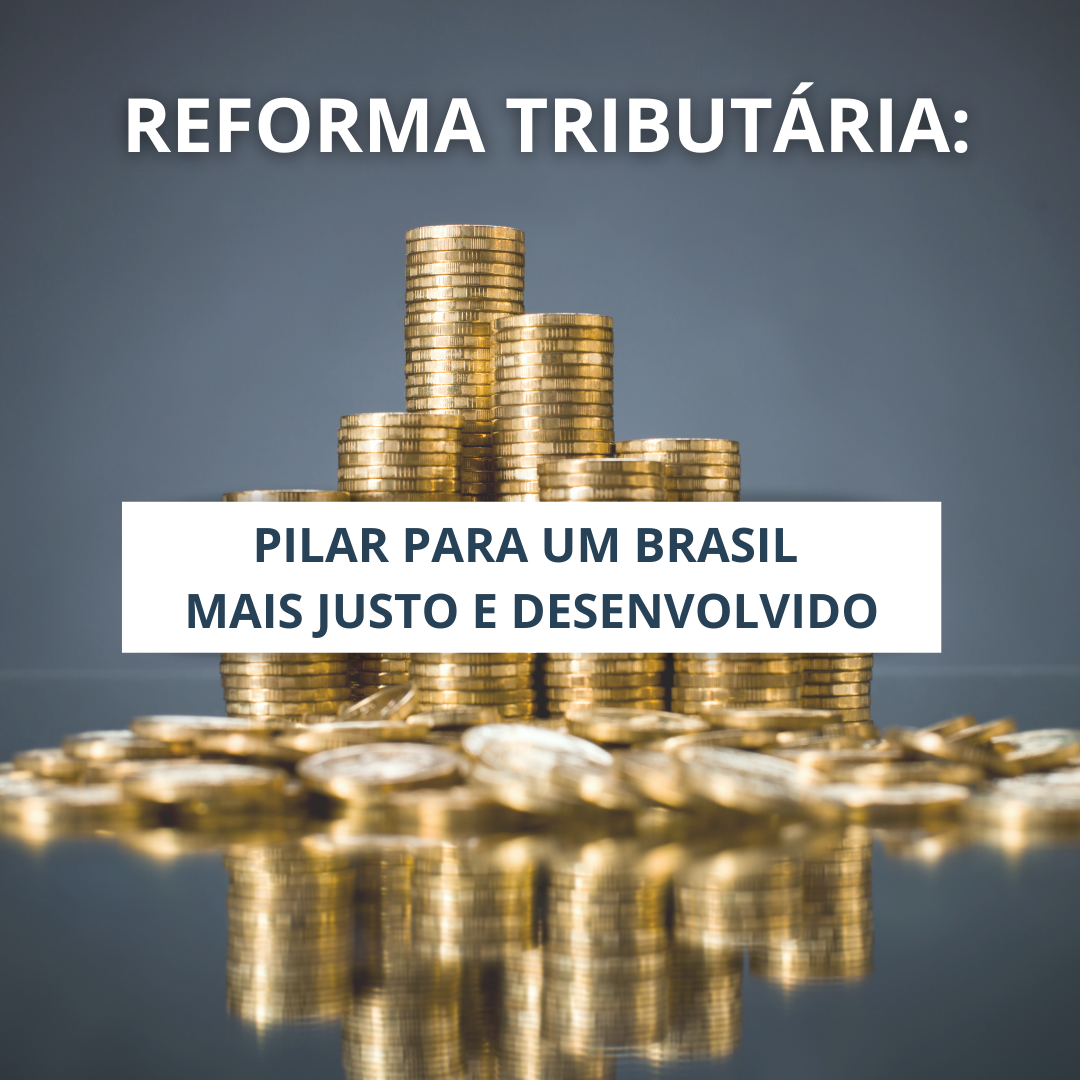Tax Reform: Pillar for a fairer and more developed Brazil!
Tax Reform is a fundamental step towards a fairer, more developed and ethical Brazil.

Tax Reform is getting closer and closer to becoming a reality in our country. And ETCO is attentive and engaged in this important debate. For 20 years, we have defended and encouraged business ethics, promoting a fairer and more transparent market.
We understand that the tax issue is essential for the economic and social development of Brazil. Therefore, we defend fundamental pillars for an efficient reform: legal certainty, simplification of procedures, rationalization of processes and no increase in the tax burden.
We believe that the Tax Reform is a unique opportunity to boost our country, generating more investments, jobs and income. In addition, it is necessary to combat illegal practices, such as tax evasion and persistent debtors, which harm society as a whole.
Our proposals are in line with studies and assessments carried out in partnership with renowned consultancies, demonstrating the importance of facing the tax litigation and underground economy, involving trillions of reais.
It is in view of this scenario that, with the advance of the tax reform proposal in the Brazilian parliament, ETCO believes that it is necessary to deepen the theme in order to assist in the decisions of the constituted powers, especially the legislative. All of this with a view to improving the business environment, increasing legal certainty and effectively and efficiently combating tax evasion.
Thus, the pillars of any tax proposal must ensure (i) legal certainty; (ii) simplification of taxpayer procedures and real-time inspection; (iii) streamlining processes; (iv) no increase in the tax burden; (v) definition of uniform rates, fighting the fiscal war; and (vi) exemption from exports (with the maintenance of immunity and existing credits).
Considering the proposals initially presented to parliament, it is important to highlight some themes:
- Regarding the institution of selective tax, we defend that, if adopted:
- Be of a restricted nature, with the prediction of incidence "ad rem" and "ad valorem", depending on the productive sector that is expressly defined by law - not in constitutional terms, so that the government is given flexibility to adapt to reality and effective need of its implantation;
- There must be, in the constitutional text itself, mechanisms and limits that prevent the selective tax from being used as a way of increasing revenue to close the public deficit;
- The claim to create or increase must be duly supported in said bill by prior studies of economic and social impact that justify it;
- It must have its limitations very clear in the Federal Constitution (maximum rate), as well as, in the case of goods already subject to the levy of the Contribution on the Economic Domain (CIDE), it must be accompanied by the necessary adjustments in the constitutional text, in order to avoid the accumulation of taxes; It is
- The tax must not be discriminatory;
- The maintenance of credits accumulated under the old regime must be guaranteed - even if their use, due to the circumstances of each taxpayer, does not happen within the transition period, there must be a way to maintain these credits -, with the express definition in the PEC itself on the return of accumulated credits and the monetization of existing credit balances in the transition, with a fixed term;
- In line with the pillars of simplicity and legal certainty, application of the single-phase taxation regime for certain sectors, to the detriment of the current “forward” tax substitution model, and
- The transition period must ensure predictability and be adjusted for cases of operations with tax incentives as a counterpart to investments made, balancing the period so as not to increase the complexity of tax compliance.
From everything presented, it is evident that the Tax Reform represents an opportunity to raise Brazil to a level of greater development and this moment cannot be wasted. The guarantee of the necessary legal certainty, simplifying the tax structure, promoting the formalization of the economy, alongside the reduction of the space for litigation and the fight against the practices of habitual debtors, constitute parameters and premises that should guide the conformation of a new reality in the relationship tax / taxpayer.
We count on everyone's support to build a fairer, more transparent and efficient tax system.



